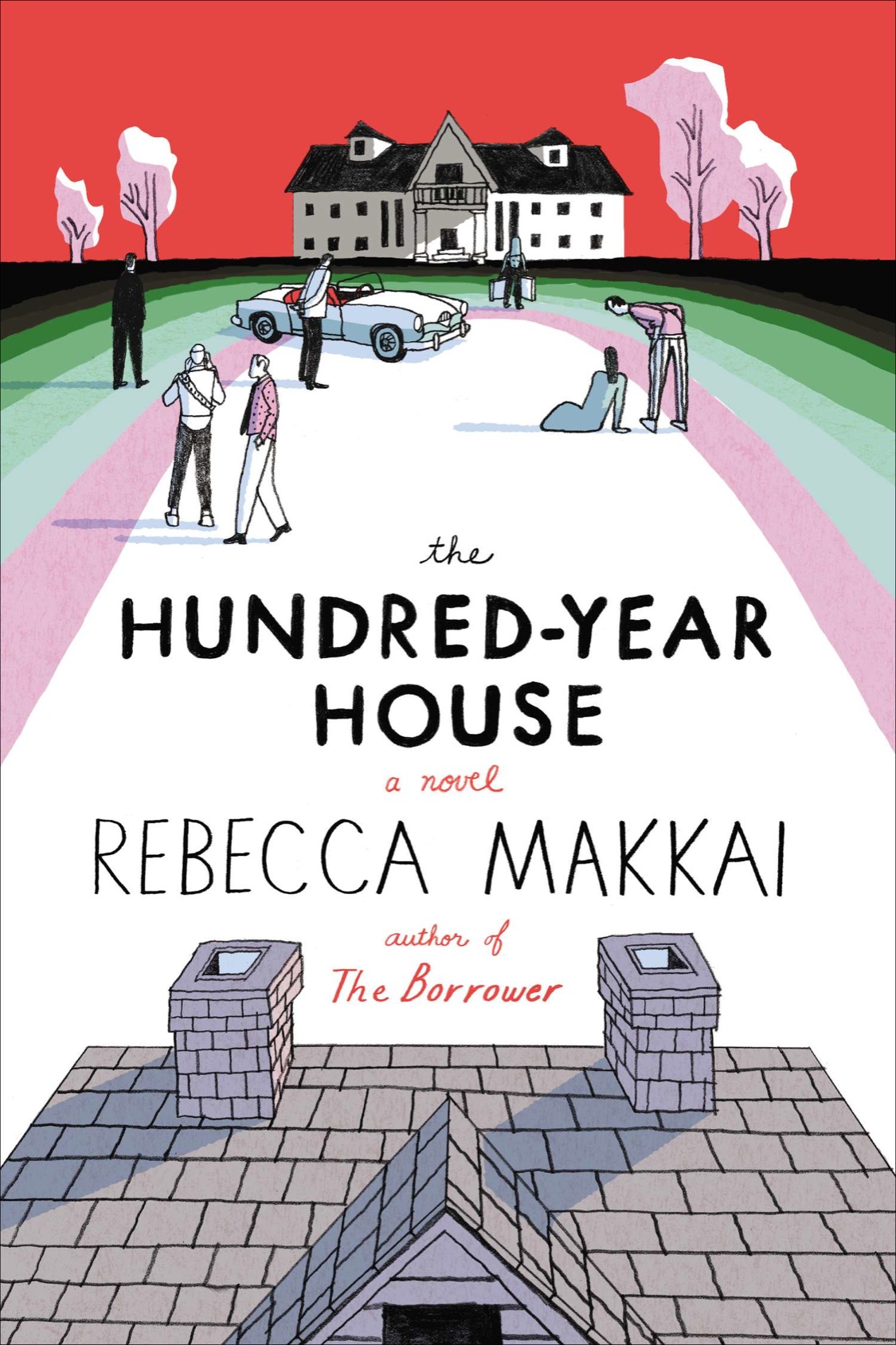
The Hundred-Year House
کتاب های مرتبط
- اطلاعات
- نقد و بررسی
- دیدگاه کاربران
نقد و بررسی

Starred review from April 7, 2014
Makkai’s (The Borrower) second novel is a lively and clever story starring an estate with an intricate history. It starts in 1999, with husband and wife Doug and Zee living in the coach house of Zee’s parents’ estate, Laurelfield, which used to be an artists’ colony on Chicago’s wealthy North Shore. Doug is a writer laboring to finish a monograph of poet Edwin Parfitt, a visitor to the colony, while earning money by anonymously writing YA fiction for a book packager. Zee teaches at the local college, scheming to destroy a tenured colleague to make room on the faculty for her husband, but her machinations take an unexpected turn. When Zee’s mother’s second husband allows his son and daughter-in-law to move in to the other apartment in the coach house, the dynamic of the group shifts. Meanwhile Doug discovers a secret about Zee’s family that he can’t share with Zee. The second section of the book goes back in time to the 1950s, when Zee’s mother, Grace, was banished by her family to the mansion with her abusive first husband as punishment for marrying him. In the third section, set in 1929, the owner of the mansion wants to shut it down, and the colonists make plans to stop that from happening—a scheme by the colonists that Doug unwittingly discovers decades later. The book is exceptionally well constructed, with engaging characters busy reinventing themselves throughout, and delightful twists that surprise and satisfy.

July 1, 2014
Two married couples find themselves cohabitating in a guesthouse on the rich-and possibly haunted-estate of Laurelfield, once an artist and writer's colony.In her sophomore novel (The Borrower, 2011), which starts in 1999 and rewinds in four parts through the decades to 1900, Makkai takes us on a tour of the house's power over its owners and the artist residents of decades past. She first closely follows the marriage of Doug and Zee, which has been upended by financial concerns and unfulfilled career ambitions. Cash-strapped, they have moved to a house on Zee's mother's estate in order for Doug to finish his monograph on the poet Edwin Parfitt, who was luckily once a resident of the artist's colony. But secretly, instead of doing his work, Doug is writing books in a formulaic middle-grade series for a couple of grand a pop. Zee, a Marxist theorist in the English department at the local college, is desperate to get her husband a job and sabotages the career of a curmudgeonly older professor in hopes that Doug will get his spot. Meanwhile, the owner of the estate, Zee's mother, Grace, allows her second husband's son, Case, and daughter-in-law, Miriam, to move into the guesthouse with Doug and Zee, further weakening an already fraying relationship. These guests of Laurelfield are complex, trapped not only by the estate, which has a complicated history and dark secrets of its own, but by their own problems and decisions; as Makkai explains, "They had come to Laurelfield to face their lives and their marriage and the end of the millennium. Any number of explosive things."Makkai strikes a smartly absurdist tone as her characters nervously await impending doom from the uneventful Y2K bug, but while the novel is both funny and smart at times, Makkai fails to make the estate the foreboding character it needs to be to both ground and uproot these privileged characters who can't see how lucky they are and how self-absorbed their lives have become.
COPYRIGHT(2014) Kirkus Reviews, ALL RIGHTS RESERVED.

February 1, 2014
Husband to the heir of an estate that once sponsored an arts colony, Doug is eager to jump-start his academic career by plumbing the colony's files. But the secrets he discovers about the colony, the house, and the family make his hair stand on end. Definitely check out this book by Makkai, who did nicely with The Borrower, an IndieNext pick and an O, The Oprah Magazine Fall Reading selection, and who has had pieces in Best American Short Stories for four years running.
Copyright 2014 Library Journal, LLC Used with permission.

Starred review from May 15, 2014
Charmingly clever and mischievously funny, Makkai follows her enthusiastically praised first novel, The Borrower (2011), with an intriguingly structured taleeach section takes a step back in timeset on a fabled, possibly haunted estate north of Chicago. After the alleged suicide of its beautiful first matriarch, Laurelfield was turned into an artists' colony in 1906 and thrived until an even more mysterious turn of events led to the property's return to strictly private use. Now, at the turn of the twentieth century, Zee, a Marxist English professor who grew up in Laurelfield, is living in the coach house with her jobless husband, Doug, who is supposed to be working on a book about a former artists' colony resident. Not only does Zee's imperious mother inexplicably stonewall his research, but Zee's batty stepfather also invites his unemployed son and artist daughter-in-law to live in the coach house. Such close quarters provide the perfect setup for farce and scandal, and Makkai choreographs both in a dazzling plot spiked with secrets and betrayals hilarious and dire. Her offbeat characters and suspenseful story could have added up to a stylish romp. Instead, Makkai offers that and much more as she stealthily investigates the complexities of ambition, sexism, violence, creativity, and love in this diverting yet richly dimensional novel.(Reprinted with permission of Booklist, copyright 2014, American Library Association.)

























دیدگاه کاربران